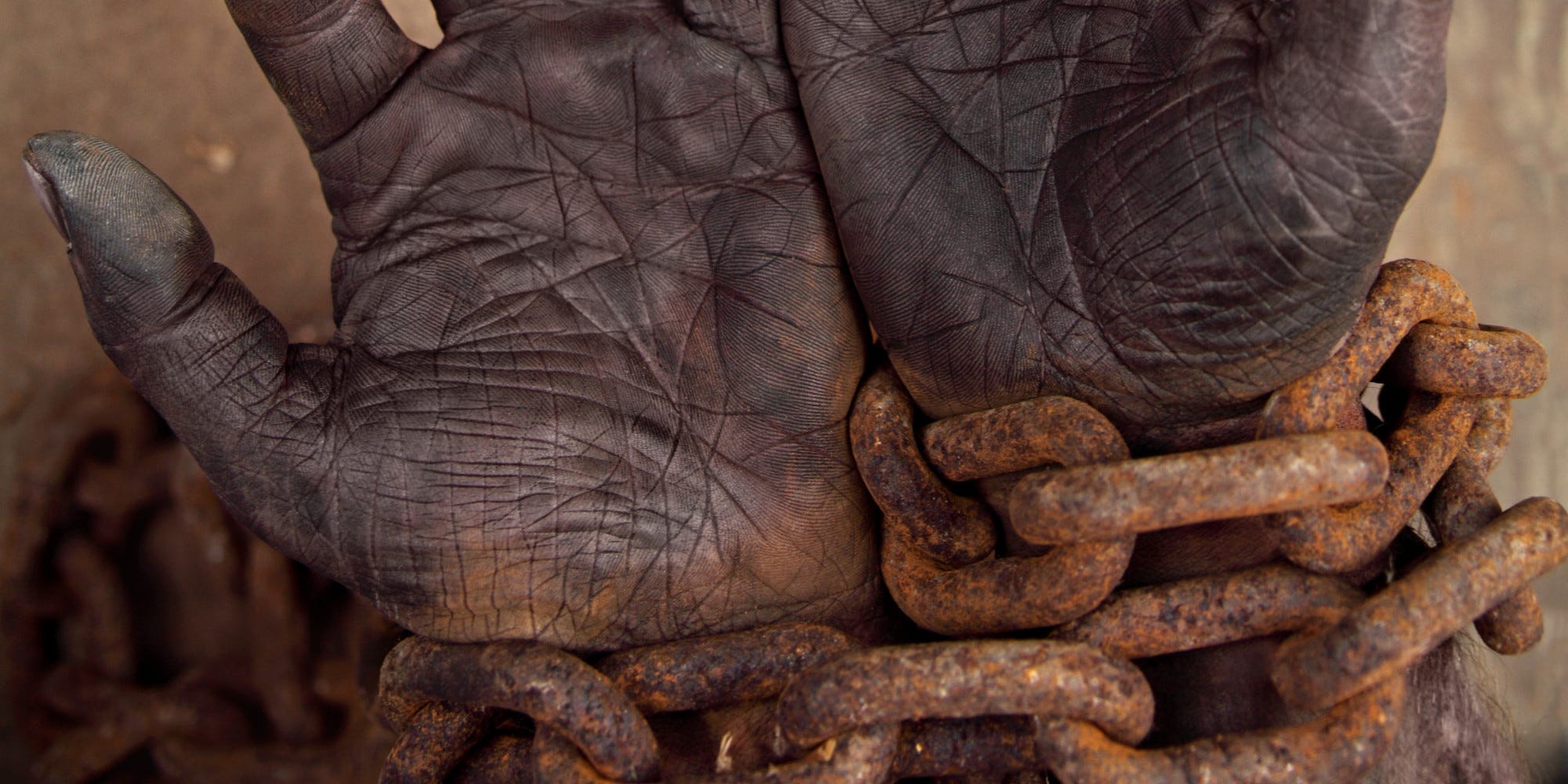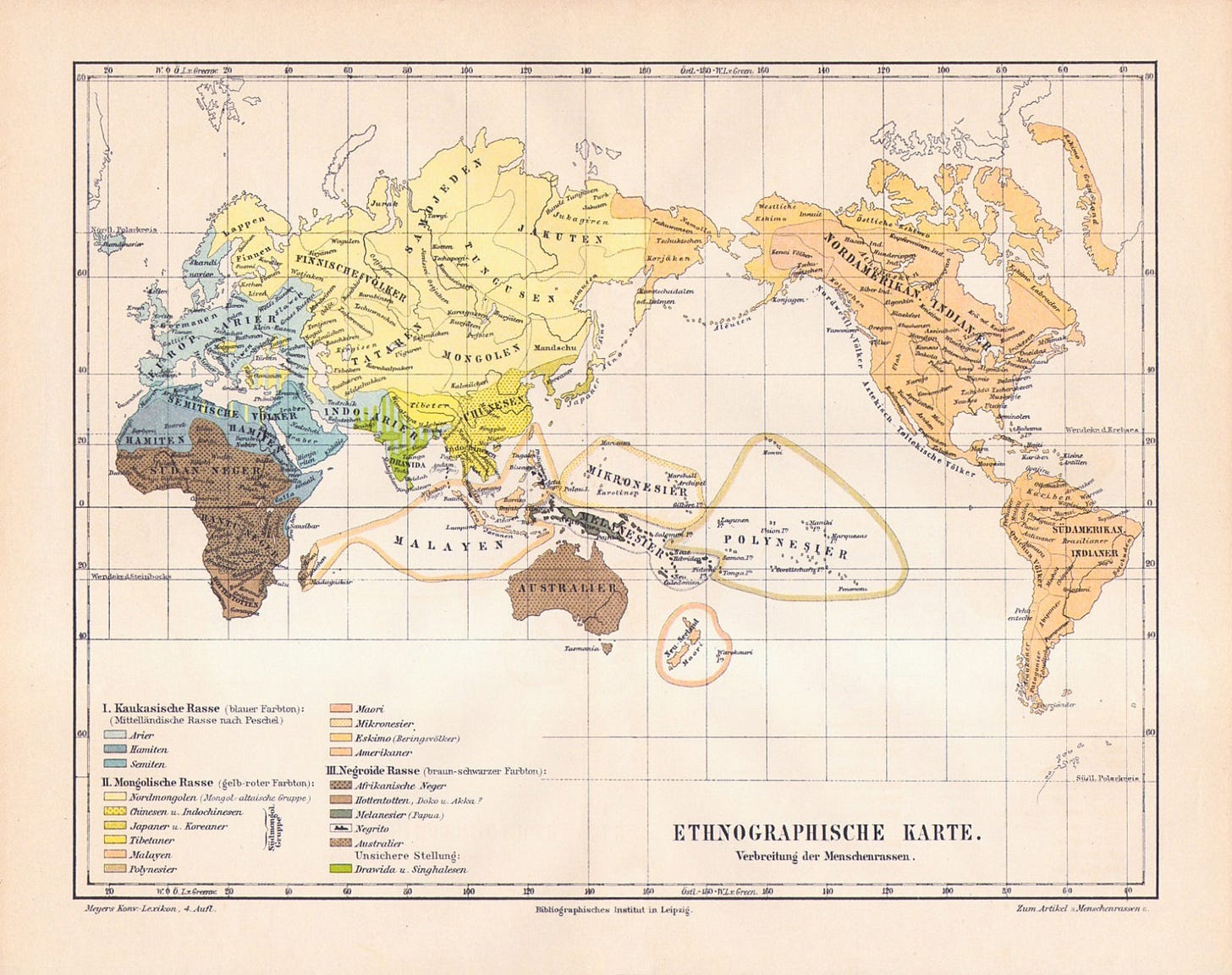Why Race cannot explain much of history
Nor can Anti-Racism
Make someone’s day: Gift a subscription to your friends and family!
One of the reasons why ideologies of the Left flourish is that they have a simple explanation for inequalities: both inequalities between nations and inequalities within nations. The human brain largely evolved in Hunter-gatherer societies, which is the most egalitarian society type, so most of us have a natural aversion to inequality.
The Leftist explanation for inequality typically involves one or more causes from today or from relatively recent history. These purported explanations for inequality include:
Bad political leaders
Government policies
Racism
Capitalism
Patriarchy
Trade
Colonialism
Exploitation
War
Slavery
In this post, I will focus on the Leftist explanation for inequality that is currently most popular: Racism.
You can read more on related topics:
Why are there such huge variations in income across the globe?
Commercial societies (which invented modern progress)
If you are interested in this topic, you should read my “From Poverty to Progress” book series:
Why Anti-Racists cannot explain human history
Many on the Left believe that race is a social construct, and yet Oppressor classes use the concept to hold down racial minorities. Both statements are completely incorrect. Let me make some statements that should be obvious to all, but make some people today uncomfortable:
Race is not a social construct; race is a biological category that is shaped by geography.
The concept of racial differences based on geography is a logical derivation of Charles Darwin’s theory of evolution by natural selection. If you believe Darwin was right about animal evolution, you must at the very least accept the plausibility of biological race.
Race is not unique to humans. Biologists have identified many races within animal species as well. They typically call them “sub-species.” Given enough time and geographical isolation, those sub-species will evolve into separate species. That is, in fact, the core of Charles Darwin’s theory of evolution by natural selection.
Racial differences are not based on individual genes. They are based on slight differences in the frequency of alleles.
Using 326 AIMs, or ancestry informative markers, researchers have achieved a nearly perfect correspondence between the race that subjects said they belonged to and the race to which they were assigned genetically.
Proof of this is the ability of DNA tests to identify a person’s race with a high degree of certainty. If race were a social construct, how could this be possible?The racial categories created by these 326 AIMs are closely related to the geography of ancestors before the year 1500 (i.e. before European expansion).
The race of a person identified by DNA tests very closely corresponds with the self-identified race of the person taking the test.
Physicists, chemists, biologists, geologists, archeologists, social scientists, historians, philosophers, and regular everyday people use categories because they are useful. These academic specialties group individuals based on important characteristics and ignore less important characteristics. There is often blurring around the edges between categories because the variables are continuous rather than discrete.
Races are based on geography of origin, which is an important characteristic for humans, just as it is for all biological animals.
Just because humans have differing opinions on how many racial categories exist does not make the concept of “race” untenable. It is merely a question of how deep you want to drill down.
One can use models of racial categories that claim:three races,
six,
seven, or
drill all the way down to ethnicity or anywhere in between.
Regardless of how far you drill down, you are still left with biology, geography, and self-identification towards a group as strongly correlated.
This is no different than the biological classification scheme for plants and animals. It depends on which level of abstraction is most useful for answering the question at hand.
Global racial inequality is not caused by oppression
So race clearly exists as geographical variation within biology that long precedes the evolution of modern humans. But is it possible that differences in the rates of pre-Industrial economic development were caused by one race, particularly whites, oppressing other races, particularly blacks?
I believe that view conflicts with the historical record for the following reasons:
All societies that evolved after Hunter Gatherers had widespread oppression of one or more group by others. The oppression, however, rarely had anything to do with race. It was typically elites extracting the food surplus from farmers in the form of taxes or land rents. This extraction was only possible through the use of violence or threat of violence.
Societies evolved into very different society types long before they even came into contact with each other.
Societies in Western Europe in 1400 were very different from societies in North America, Central America, South America, Africa, Asia, and Australia. Asian Agrarian societies, such as China, Japan, and Korea were also very different from the rest of the world. So there is no way that those differences between races in say 1400 were due to what members from other races did to them.And even after different races came into contact with each other, most societies evolved with very little impact from other races. Europeans largely ruled indirectly via traditional indigenous elites that were there long before European conquest.
European colonialism was only three centuries in Latin America, about one century in most of Asia, and less than one century in Africa. This is a very short period in comparison to the tens of thousands of years before European conquest.
The very reason why Western Europeans were able to oppress Latin Americans, Africans, and later Asians was because they possessed superior military technology and organizations before 1500. This was the result of millennia of European technological and organizational innovation. So the very fact that Western Europeans were able to conquer those other regions is proof of their technological superiority.
So the Anti-Racist theory of racial oppression being a major cause for shaping human history is completely incorrect. But the Racist interpretations that members of one race are biologically superior to members of other races is also untenable.
Most of the rest of the following is an excerpt from my book From Poverty to Progress: Understanding Humanity’s Greatest Achievement. You can purchase discounted copies of my book at my website, or pay full prize at Amazon.
Why Racists cannot explain human history either
Let me be clear, the argument that I am making about why societies developed differently has nothing to do with race. Race is a genetic characteristic of a person, but there is not the slightest evidence that it has an important impact on how societies in different regions evolve.
The concept of Society Type, which I explained in previous articles, is far superior to the concept of race in explaining variations in economic development between societies. Below is a graphic that gives an overview of human history using the concepts of:
society type (in white rectangles),
geography (the colored columns), and
key technological innovation (in gray rectangles).
The actual cause for wide variations in income between nations today is geographic constraints on food production and the resulting type of societies that could develop within those geographies. Then it is quite possible, that sexual selection (another less well-known theory of Charles Darwin) and other factors played a role in making those people and cultures different over time.
Because both race and society types vary by region, this creates the illusion that race is important to societal change. It is not. This fact should be obvious to anyone who has read my other posts but race has become such a controversial topic that it needs to be stated clearly and boldly.
Different society types on each continent
Multiple society types have inhabited every continent and racial group. Regardless of the racial characteristics of their inhabitants,
Hunter-Gatherer societies across the globe strongly resembled each other up until 1500.
As did Horticultural societies, Herding societies, and Agrarian societies.
Each region has certain geographical constraints that enabled certain society types to evolve and other regions had different constraints. It was geography, not race, that explains the variation in societal development.
The race of the inhabitants was irrelevant to the formation of society types. There is not the slightest evidence that racial characteristics in any way changed society types or prevented any from evolving to more complex types.
If Europeans had evolved in geography similar to Sub-Saharan Africa, they would have evolved societies very similar to the ones that actual Africans lived in. And if Africans had evolved in geography similar to Europe, they would have evolved societies very similar to the ones that Europeans lived in.
Differences within each race are much too big
People who are genetically European have lived within all seven society types. They started as Hunter-Gatherers and gradually evolved up the evolutionary sequence to Horticultural societies and then Agrarian societies. They did so because of geographical factors that had nothing to do with race.
Some of those nations evolved into Commercial societies because of geographical and political factors. Then one of those Commercial societies industrialized, all of Europe evolved into Industrial societies. Again this had nothing to do with the fact that they were genetically European.
People who are genetically Asian have also lived within all seven society types. Because of geographical factors that vary by region, different Asian societies follow different evolutionary sequences.
Like all regions, Asians started as Hunter-Gatherers. Some Asian societies evolved into Herding societies, some evolved into Horticultural societies, and some evolved into Agrarian societies. The cause of these different pathways was geography, not race. Most recently, many Asian Agrarian societies evolved into Industrial societies. One race evolved into many different society types.
People who are genetically African have lived within four different society types. Because of geographical factors that varied by region, some African societies evolved into Herding societies, some evolved into Horticultural societies, and some remained as Hunter-Gatherers.
Again the cause of this diversity was geography, not race. And many people today of African descent are living in prosperous Industrial societies and enjoying the benefits of doing so (although clearly at lower levels of education, income, wealth and social status). The same is true of Native Americans and other indigenous peoples throughout the world.
Because both race and society types are related to geography, it is easy for people to mix the two up. Because the race of a person is immediately visible to another person, it is easy to assume that characteristics or behaviors are driven by race, rather than the legacy of their ancestors’ society type.
Why radical ideologies obsess about race
It is not an accident that radical ideologies on both the left and right obsess over the concept of race. Ideologies always obsess over certain demographic factors to pit them in conflict with each other. One is labeled the Oppressor and the other is labeled the Oppressed.
Ideologues conveniently paint themselves as rescuers of the oppressed, who are said to not fully understand their self-interest. The ideologues claim that if they are given total power, they will liberate the oppressed and bring progress to them.
It should be clear, though, that radical ideologues sabotage progress and individual success rather than promoting it. Progress comes out of the natural working of the vast, decentralized problem-solving network that is a modern society. The “solutions” proposed by ideologues attack the very foundations of progress.
Obsessing about racial differences undermines upward mobility
Those who promote racial identities undermine progress. When one believes that some people become successful by exploiting the rest of society, this undermines the moral legitimacy of the successful. This undermines the desire of people to copy the successful.
When people believe that their group is inherently more moral than other groups, this undermines the desire of members of that group to copy successful people in other groups. The strong centralized institutions promoted by ideologues undermine the diversity and experimentation that is necessary for success.
Upward Mobility, integration, intermarriage, and copying the successful, even if they are from other racial groups, is the way to promote success for racial minorities. Radical ideologies and racial identities will only undermine their success.
Other factors explain far more
I hope that the concepts in this Substack column and my book series enable us to view the world in a non-racial way.
I hope that if people start recognizing the importance of geographic constraints, food production, society types, and the radically varying amounts of innovation within differing society types, we can move past the extremely unproductive discussions that revolve around the concept of race.
Progress is an evolutionary process that has been gradually spreading across the planet for 800 years. It has been a great force for positive change in people’s lives. Because progress is the outcome of millions of decisions made by regular people, each of us can either promote or hinder progress. In particular, we can make decisions that enable us to enjoy the benefits of the progress that surrounds us.
Obsessing about race only gets in the way.
Most of the above is an excerpt from my book From Poverty to Progress: Understanding Humanity’s Greatest Achievement. You can purchase discounted copies of my book at my website, or pay full prize at Amazon.
You can read more on related topics:
Why are there such huge variations in income across the globe?
Commercial societies (which invented modern progress)
If you are interested in this topic, you should read my “From Poverty to Progress” book series:






great nuance
Well said.